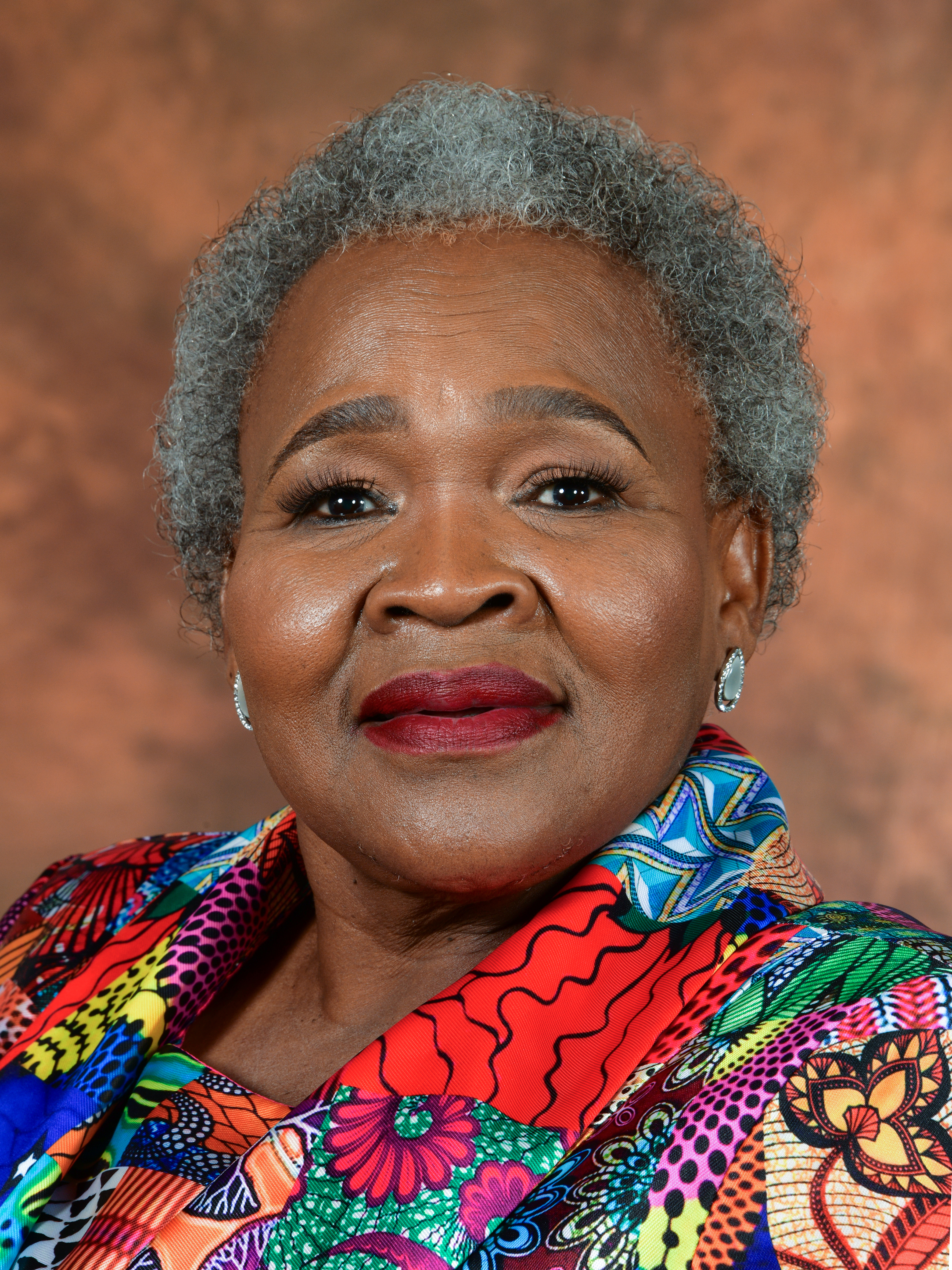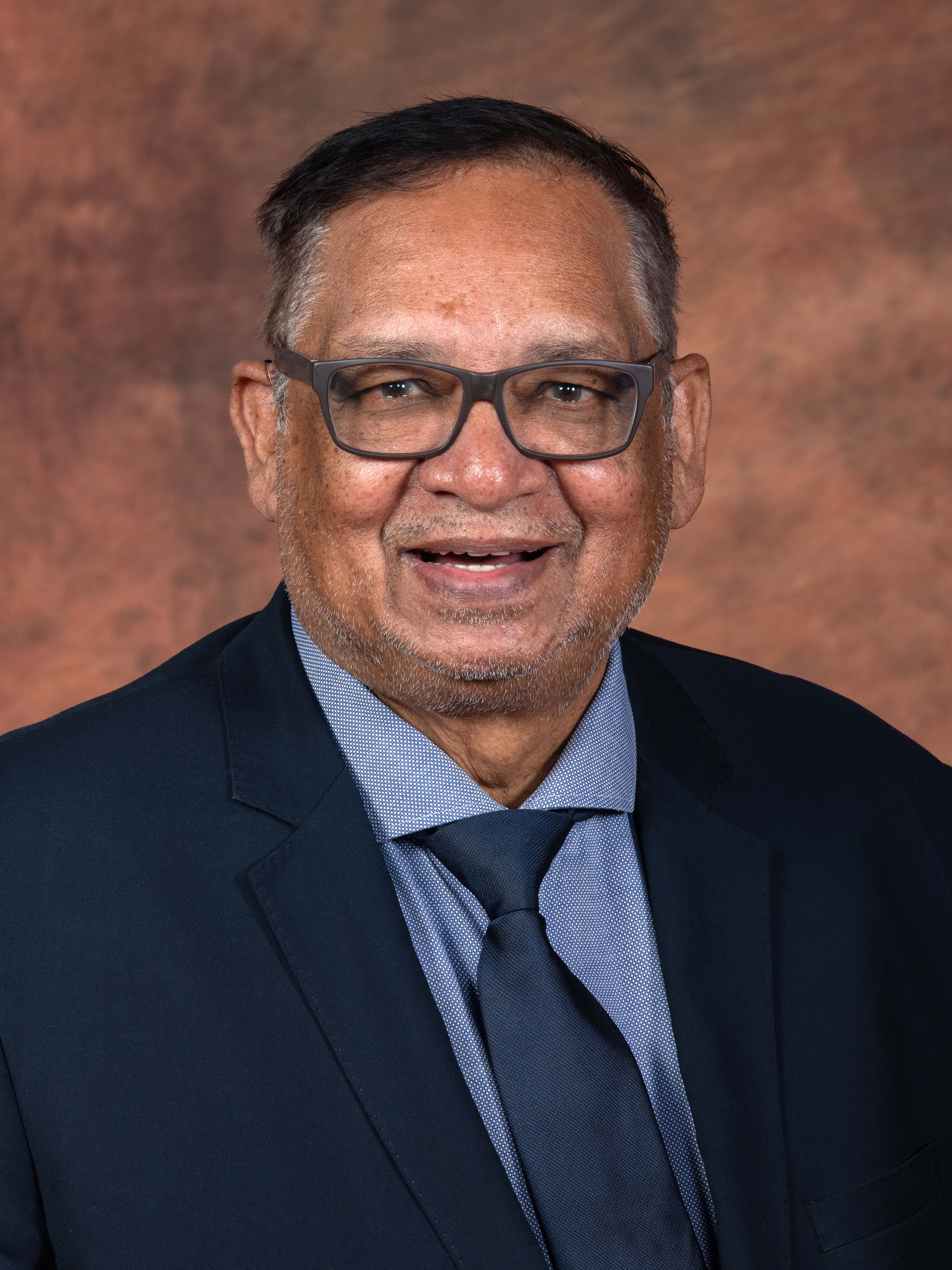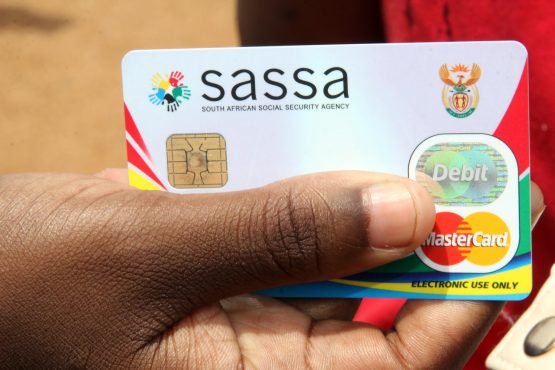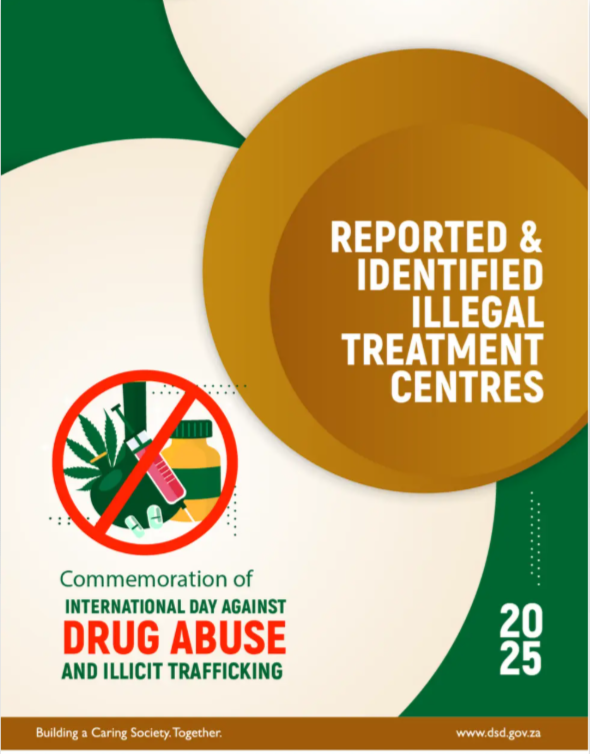Executive Statement by the Minister of Social Development, Ms Lindiwe Zulu (MP) to the National Assembly (NA)
Honourable Speaker and Deputy Speaker of the National Assembly; Honourable Members; Deputy Minister Hendrietta Bogopane-Zulu; and Fellow South Africans.
I thank all the social services’ professionals. These are our frontline troops in our national responses to the adverse social impact of the coronavirus disease of 2019 (COVID-19) pandemic that is distabilising our households, communities and society at large.
Whether you are a social worker, community development practitioner, child and youth care worker, probation officer or community volunteer, I commend your tireless commitment as soldiers in the war against the invisible enemy: the COVID-19 pandemic. Your personal sacrifices cannot go unnoticed.
Never before in recent memory have the social service professions (SSPs) been called to contribute to the frontlines to resolve as exceedingly complex challenges as those that accompany the COVID-19 pandemic.
Characterising the period wherein society needs you most is an increasingly weakening global economic growth and the fast-disappearance of previously- available public and private resources.
The Deputy Minister and I thank the Members of Parliament for your ongoing cooperation and collaborations on social development-specific concerns in your constituencies as well as in your oversight role. We are in this together. Today we are on one side grappling with the COVID-19 pandemic that is on the other side. We will still need each other tomorrow when we might be faced with
another yet-to-be-known mutual threat. The COVID-19 pandemic must help us to hold together and ready ourselves for tomorrow’s challenges.
At the centre of our work is investing ourselves towards the wellbeing of each and every South African. Section section 41 (1) (b) of the Constitution of the Republic of South Africa of 1996 provides that (I quote) “All spheres of government and all organs of State within each sphere must secure the well- being of the people of the Republic.” (Unquote).
For every South African to achieve her/his highest levels of wellbeing, each of us needs to be consistent in our contributions towards our collective’s efforts. In this manner, we will adequately improve our responsiveness. This
responsibility is distributed among and resides with: the individual citizen; civil society; the collective of government (for instance, the departments of social development, health, basic education, human settlements, etc.); the private sector; etc..
Confronted with the challenges that accompany the COVID-19 pandemic, the Department of Social Development immediately rose to the challenge. This tested our systems as much as it stretched them. In carrying out our COVID-
19-related work, we are guided by government’s adopted approach and system (for instance, the National Coronavirus Command Council (NCCC), the NatJoInts, issuing and updating regulations and directions, etc.). The Department and its entities are continuously extending themselves and reaching out to the sectors that we are serving (for instance, when we craft directions and make inputs into regulations), potential partners (when establishing service delivery innovations), and communities (because we believe nothing can be decided about our beneficiaries without their involvement). These efforts have brought us together.
Without being exhaustive, few among the partners we have been working with towards dealing with the challenges that accompany the COVID-19 are: the United Nations; Solidarity Fund; the Spar Group; the Church of Christ of the Latter Day Saints; Old Mutual; Unilever; Khula Milling; SA Sugar Association; South African Breweries; and Procter and Gamble. Yesterday night I was participating in an inter-departmental meeting wherein technological innovations, data capabilities and food security and food access are being brought together.
The COVID-19 pandemic continues to expose our society’s systemic limitations.
Introduction
I thank the opportunity to update this House on our responses towards dealing with the challenges that accompany the COVID-19 pandemic. While we are responding to the COVID-19 pandemic, we remain committed to the National Development Plan 2030: Our Future — Make it Work. Therefore, this Executive Statement is made before you as part of our government’s demonstration of the extraordinary measures that we intentionally planned and are implementing to protect all South Africans against the unprecedented socio-economic impact of the COVID-19 pandemic.
What do we mean by “Social” in Social Development
In this Executive Statement not only am I drawing our collective attention to the adverse impact of the COVID-19 pandemic on the essence and makeup of our social fabric. I particularly call upon all of us to realistically evaluate the relevance and sufficiency of our collective COVID-19-mitigating investments and efforts. These are the investments and efforts with which we seek to undo the impact of the greatest misfortune that has befallen us, and particularly the most vulnerable members of our society.
Were it not for the insightful policy documents of the African National Congress (ANC), for instance the Freedom Charter and the Reconstruction and Development Programme frame, our society’s responsiveness to the COVID- 19 pandemic would be found wanting. As stated in the Freedom Charter development is (I quote) a “birth right” (Unquote). Because of the insistence of these policy documents on coordinated, cooperative and comprehensive approach to governance, South Africa’s response to the challenges that accompany the COVID-19 pandemic is strengthened by the systems that flow from these policy documents.
For this reason, and properly understood, social development is the function of multi-stakeholder and transversal partnerships that involve the ANC-led government, the private sector, civil society, academia-research institutions and our multilateral partners. In the period of the COVID-19 pandemic, the “social” in social development represents the participation of each and every one of us through partnerships that are focused on resolving our social challenges.
The most vulnerable of our countrywomen and –men who must benefit from these partnerships and the programmes of social development are: members of our households and communities for whom inter-generational poverty is the scaffold that continues to shape their lived experiences; those with health comorbidities; children; the unemployed and unemployable; our senior citizens;
single parents; people with disabilities; youth; our country’s women; the hungry; and those who live in townships, remote and rural places of our country.
This Executive Statement serves to remind us of the known but long-denied as well as hidden vulnerabilities that our people involuntarily live with. Despite the denial of their vulnerabilities by some among us, the advent of the COVID-19 pandemic is reinforcing the visibility of the adversely affected among us.
The Social Development Portfolio
I hereby wish to assure you that the Department of Social Development, its entities (the South African Social Security Agency (SASSA) and the National Development Agency (NDA), the provincial departments of social development, the South African Council for Social Services Professions (SACSSP), our funded not-for-profit (NPOs), non-governmental organisations (NGOs), cooperatives and our partner institutions are working hard to mitigate the impact of the COVID-19 pandemic on each and every one of us, particularly the vulnerable. Together, we are the Social Development Portfolio.
The portfolio approach has been particularly beneficial in the face of the unprecedented social development challenges that accompany the COVID-19 pandemic, where we: needed to harness and improve resources’ and programmatic efficiencies; and uncover and mobilise social innovations. The COVID-19 pandemic flung open our doors to learning. For this reason, we learn from one another as much as we learn from others. This is how we continue to improve our programmes.
Consequently, the advent of the COVID-19 pandemic in South Africa has stimulated greater sector-wide coordination and collaborations, as much as it is inspiring our programmes’ agility and responsiveness. The portfolio approach
is particularly useful where we target and deploy it through the District-centred Development Model.
R500 Billion Investment
The Social Development Portfolio is among government’s key implementers of the three-pronged social relief and economic support package whose value President Cyril Ramaphosa announced to be five hundred billion Rands (R500 Billion). This represents government investing ten percent (10%) of South Africa’s gross domestic product (GDP) into our people as well as the economy.
Our government directed an unprecedented fifty billion Rands of this towards relieving the plight of the unemployed and current grant beneficiaries. As expected, the Social Development Portfolio rose to the challenge to defend South Africans against the COVID-19 pandemic through the administration of the social relief stimulus package. Verifiably, the following are among the investments we have been making since the lockdown period. We have:
- allocated a total of forty point five billion Rands (R40.5 Billion) to boost our sector-level responses to the pandemic;
- allocated ninety-five million Rands (R95 Million) from the Criminal Assets Recovery Account (CARA) to strengthen services for combating the shadow pandemic of gender-based violence and femicide (GBVF);
- distributed over one point two million (1.2 million) food parcels from which six (6) million individuals (counted at household level) gained access to food;
- employed an additional one thousand eight hundred (1 800) unemployed social work graduates. While the Free State provincial department of social development has extended the contracts of these graduates by another nine (9) months, it is exploring ways of absorbing them into permanent employment (in this respect, other provincial departments are exploring similar options);
- received over seventy-six thousand (76 000) calls through the Gender Based Violence Command Centre (GBVCC) unto whom the much- needed psychosocial support services was provided;
- provided physical accommodation, food, psychosocial support, blankets and personal protective equipment (PPE) to over thirteen thousand (13 000) homeless persons who were accommodated in one hundred and seventy-seven (177) shelters;
- employed two thousand (2 000) youth volunteers through the National Development Agency pursuant of the need to socialise the COVID-19 pandemic behavioural changes, etiquette, etc. to community members; and
- stimulated youth entrepreneurship in the production and rendering of services that reduce the impact of the COVID-19 pandemic in our communities. To this end, the President’s economic stimulus package will be allocating one point three billion Rands towards the employment of thirty-six thousand (36 000) youth as compliance monitors in Early Childhood Development (ECD) centres and partial care facilities.
Social Security Grants
The child support grant (CSG) beneficiaries received a top-up of three hundred Rands (R300.00) in May. And, between June to October caregivers will receive an five hundred Rands (R500.00) each month. Other grant beneficiaries will receive a top-up of two hundred and fifty Rands (R250.00) per month over
the six (6) months’ period that is ending in October 2020.
Special COVID-19 SRD Grant
Through SASSA, the Social Development Portfolio developed new grant administration and payment systems for the special COVID-19 Social Relief of Distress (SRD) grant for the unemployed. Qualifying applicants will be receiving three hundred and fifty Rands (R350.00) of this grant per month over the six
(6) months’ period that is ending in October. Qualification criteria include, applicants: not being beneficiaries of any other form of social security grant or UIF payment; not being in receipt of income at the date of applying.
The COVID-19 social relief stimulus package that the Portfolio innovated and will be administering until October alleviates the beneficiaries’ day-to-day challenges. This social relief stimulus package has no equivalent in South Africa’s history both qualitatively (focused on unemployment) and in scale (the COVID-19 pandemic has grown South Africa’s unemployment figure to beyond ten point two (10.2) million). To date, we have received seven point eight (7.8) million COVID-19 SRD grant applications. The special COVID-19 SRD grant payments have duly been paid into the accounts of five (5) million of these applicants. This number represents those that were found to be eligible and whose information has been verified by various databases.
Let me hasten to add that the information of all the applicants who were previously disqualified by the various validations databases we work with (for instance, the UIF, SARS, NSFAS, etc.) is continuously being re-run in these databases. Therefore, all the applicants that were previously disqualified due to
database errors are being reconsidered. As we do this, the number of applicants who are eligible for the special COVID-19 SRD grant is increasing. These are being notified of their payment of the special COVID-19 SRD grant. In this regard, payments for the months of June and July — totalling seven hundred Rands (R700.00) — have commenced, and approximately one (1) million applicants in this category of applicants are receiving their payments.
Among those who are receiving their special COVID-19 SRD grant are Ms Mokgadi Natalia Malatji, Mr Sbu Nkosi and Mr Elliot Monareng. We have developed a dedicated appeals mechanism with whom aggrieved applicants can raise dissatisfactions with their application outcomes.
While we are noting that the special COVID-19 SRD grant may be addressing the money-metric dimensions of the applicants’ lives, increasingly the beneficiaries are reporting that this grant is opening up other opportunities that they previously could not access. In other words, the special COVID-19 SRD grant is uncovering “human capabilities” among its beneficiaries.
Thus, the special COVID-19 SRD grant is adding to the efforts of the ANC-led government to undo the historical social and economic injustices that made South Africa the most unequal society in living memory. For this reason, no one will be left behind.
Corruption and Mismanagement
In his address to the nation last week on 23 July 2020, President Cyril Ramaphosa provided detailed guidance relating to (I quote) “...the management of the resources that we have dedicated towards the fight against COVID-19” (Unquote).
I hereby reiterate my unflinching commitment to this House, the President of South Africa, the taxpayer, and the nine state institutions that the President mandated to deal with the theft, abuse, misappropriation and mismanagement of the COVID-19 response funds. I immediately offer to assist the processes that are designed to investigate related misconduct by anyone whatsoever in the Department of Social Development and its entities. Furthermore, I encourage the members of the public to report misconduct in the areas of, for
instance, the distribution of food parcels, social relief grants, the procurement and overpricing of personal protective equipment (PPEs) and COVID-19-
related medical supplies, etc..
NCCC and the District-centred Development Model
I am continuously pursuing processes that are targeted at deriving prime value from the recent appointment of district champions to the fifty-two (52) district and metropolitan municipalities throughout the country. Through these district champions, the Social Development Portfolio will improve the proximity and responsiveness of its programmes relative to the felt needs of our communities in so far as the adverse impact of the COVID-19 pandemic is concerned.
The BIG Discourse
As much as we are meticulously noting what works with the COVID-19 SRD grant, we are equally welcoming and encouraging deeper public discourse that is centred at innovating sustainable social protection coverage solutions that
are targeted at addressing poverty and inequality by developing our society: the world’s most unequal society! Therefore, every South African must contribute towards meaningfully defining the paths that will engineer our society into the new normal wherein, as we envisaged in the National Development Plan (NDP), the social protection coverage is extended to the missing middle parts our population. Therefore, we call upon each South African to bring their innovative, ingenious, creative solutions to the possibilities, design and scale of the BIG solution.
GBVF
As we wage a war against this invisible enemy, we must not overlook the man- made pandemic (literally) that is afflicting women and girls. This is the pandemic of gender-based violence and femicide (GBVF), and it thrives in the shadows, behind walls, where there is silence and in darkness. In this regard, the Department participated in the recent review of the Domestic Violence Act and other pieces of legislation that are targeted at the protection of women, girls and vulnerable persons. As much as I am an integral member of the relevant inter- ministerial committees (IMCs), this extraordinary period requires tangible action against the GBVF.
Therefore, as I mentioned earlier, through the NDA, the Social Development Portfolio is investing ninety-five million Rands (R95 Million) towards supporting civil society organisations in the GBVF sector. Equally, we have increased the capacity of the Gender Based Violence Command Centre (GBVCC) towards meaningfully meeting the increasing demand for our services.
The one thousand eight hundred (1 800) social work graduates that we employed are focusing on dealing with the multifaceted societal behavioural change challenges, including anti-substance interventions.
Pursuant of the spirit of the National Drug Master Plan, we are grateful to the President and Cabinet for reinstating the ban on the sale and consumption of alcohol as the presence of alcohol correlates with the increases in the number of gender-based violence and femicide (GBVF) occurrences as well as other social ills.
As the ANC resolved during its fifty-fourth (54th) Conference in 2017, (I quote) “...societies that are unequal socially and economically are more prone to have people who engage in the harmful use of alcohol and drugs, to have high levels of violence and high levels of gender based violence” (Unquote). As it would be said colloquially, as we moved deeper into the lockdown it was as if these pre-COVID-19 observations were on steroids.
COVID-19 Lessons
The COVID-19 pandemic brought some lessons for the Social Development Portfolio. Among these, the following are noteworthy:
- Whereas the size of the budget that is allocated towards a programme would instinctively be a “solution” to most social development challenges, the economic configurations have thrust the need for partnerships that are founded on the sustainability of society right in the forefront. For instance, where the fiscus cannot afford to absorb unemployed social service professionals (SSPs) into permanent employability, private sector partners can absorb these as part of their corporate social investment (CSI).
- Whereas government has provided a broad guide for the implementation of programmes through the District-centred Development Model, the Social Development Portfolio is being presented with the opportunity to fine-tune this for the sector and further develop municipal ward level programme planning and resource allocation.
- The Social Development Portfolio can better deliver selected services by increasingly investing in data technologies and digitisation.
- The special COVID-19 SRD grant has uncovered the pitfalls of disjointedness and questionable integrity of the state’s databases. The grant has sharply pushed all stakeholders to think of government’s service provision data as a single data ecosystem. Therefore, the improvement of the special COVID-19 SRD grant will mainly be premised on the integration of government’s service provision data ecosystem.
- The Portfolio is going to sharpen the rigour of its planning, implementation, learning, outcomes and impact monitoring and evaluation.
Conclusion
On behalf of all of government, I take this opportunity to express our condolences to the families, relations and friends of those who lost their loved ones to this pandemic.
I thank you.


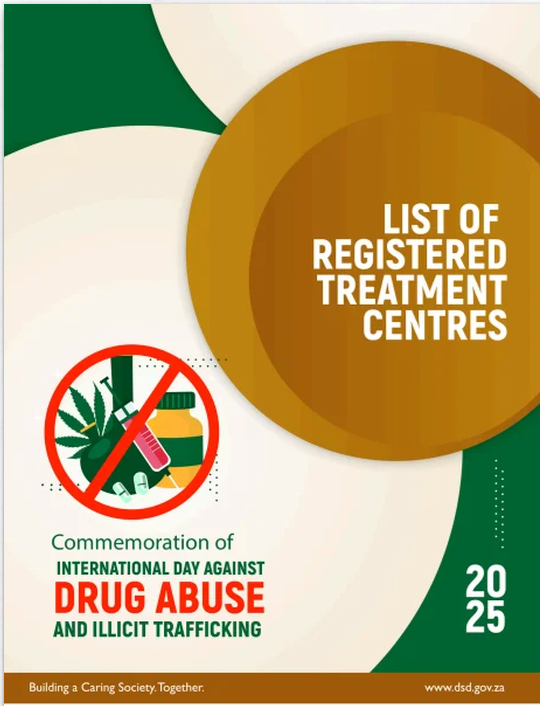

 0
0 